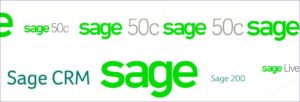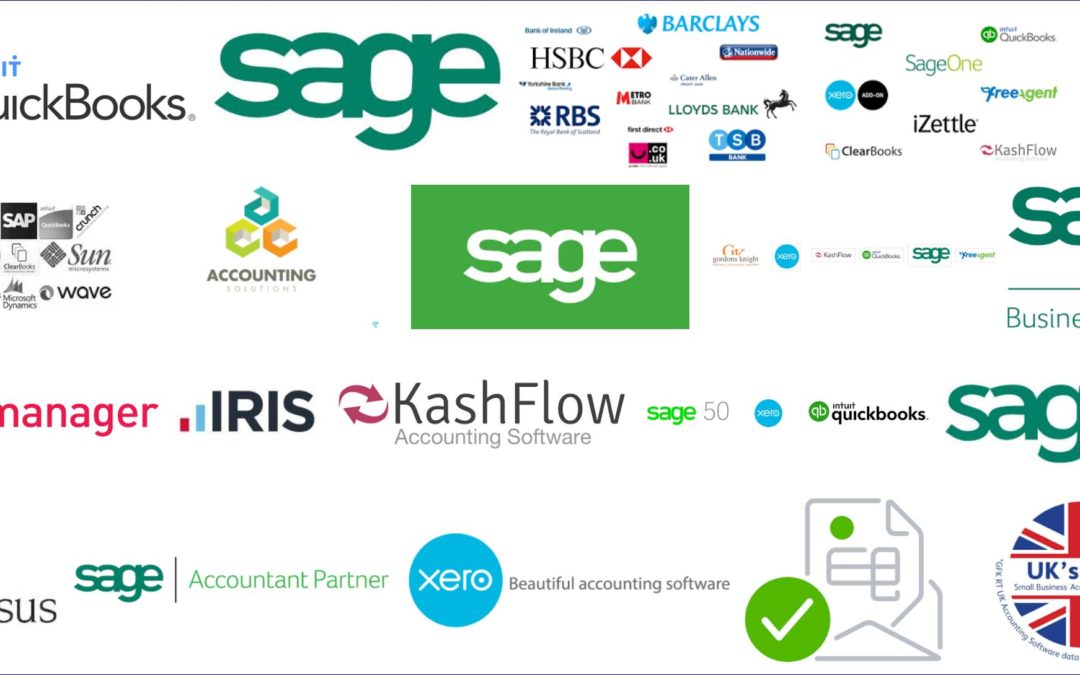What accounting system should you choose?
About 4 months ago I was contacted by a gentleman that had been passed my name by a network contact, he has been running his company for just over 5 years, a “one-man band” using sub-contractors. His company is in interior design, his clients are predominately small business, offices, shops etc.
His accounts have been simple to date, excel spreadsheets have allowed him to keep track of the jobs, create a basic sales invoice for his clients and a running list of invoices from his suppliers and subcontractors, with a column indicating paid/unpaid, another spreadsheet that he uses to keep a running total of the bank account. At the end of a quarter his accountant completes his VAT return, and in turn his annual return. He usually spends about a day each month compiling information for the accountant to work on. His question to me was, “I’m growing, or at least I think I am, I seem to be working all the hours, but I am can’t tell which project is really making a profit or for that matter a loss. I have decided to take on some additional staff but not sure that I can afford them, mainly to help with the design work and the office admin, I also want more info from my accounts, can you point me in the right direction for some software?”
Lots of thoughts went through my mind as I am sure you can imagine.
There are many different accounting systems on the market. Who says you must have a computerised system? You may opt for a manual system, by manual, it is generally considered that Microsoft excel is best for manual keeping of records. As this gentleman had, an excel spreadsheet will keep simple movements in/out of an account. All Financial reporting becomes is a very manual task, extracting information for HMRC, and for business management which his accountant was completing for him.
Most will consider a software package, there are many in the market place. Which one you choose depends on the type of business, size of organisation, whether to go for the cloud or on premises installation. The cost, features or modules, ease of use,
There are many factors that affect a business at the birth of the company, occupied with getting the business of the ground, premises, staffing, legislation, then through various stages as the business grows and develops. Choosing the correct accounting software for a business can be stressful. Wise selection process will put your mind to rest. Make sure that the software you have will do what you need and want, that it will not hold you back and allow your business to grow in the future, essential to know want you do need from the system as basic, then consider future proofing, the business is wanting to grow and develop, will the software cope? Instead of investing in an all singing & dancing software at the start which can be costly, especially if the business doesn’t need everything initially, can the software have additional modules as the company grows easily, is it easy to you add more users.
- Cloud or Premise
- Cost
- Internal/outsourced IT
- No of users
- Maintain, monitor & control.
- Industry specific software compatibly
- HMRC compliant
Below are some of my thoughts that I put forward to help with the decision process, things that you should consider when selecting you accounting package. These days almost always the first question asked is “to Cloud or Not”
Q1: Should it be on-premise or cloud based? This is a biggie, it will have an impact on cost. With the development in technology, options today are vast, many software’s are cloud base. These will generally have monthly subscription costs, which may initially seem expensive, but against the investment in hardware, can make a viable solution. For a small organisation with no one responsible for the IT, this could be the answer. All that is required is an internet connection. With the data, all held in the cloud, your business no longer needs to worry about hardware failures, remembering to take backups or unauthorised access. Upgrade downtime will be a thing of the past – this will all be completed for you. Usually at a convenient time i.e. overnight, with your system being in the cloud, you rely on experts to maintain and keep safe.
On Premises software, often this option is considered appropriate where there is an IT person/department within the organisation to maintain and monitor. This method gives control to the business, as the software is loaded on to server(s) access is controlled as are the backups and security and access of the system. Usually has an initial investment outlay with annual licensing. In general, can still be access remotely as required, many of the large software packages are offered in both version with the ability to start in one format and swap to the other method.
Q2: Where to start looking? Where do most of us start looking these days? Internet is a good starting point, read reviews, articles that other uses have written, try to find someone who has used the software in earnest to give a true picture of how the program performs. Ask other people in business what they use and what they think of the software, do their staff like it and find it straight forward to use. Have trials version, demonstrations, this is a big investment for the business, and a critical one. It is imperatives that the software conforms to certain standards HMRC, GAAP (General Accepted Accounting Practice) in the UK, etc.
Q3:Who is going to use it? How many users are going to need access to the software? Does the business require just a single user or multi-users? Will there be any user’s remote workers?
Q4:What modules does the business need? Find out if there is any industry specific software that the company uses, can it be linked to a particular accounting system. Do you only need software that keeps tracks of your bank accounts, customers and suppliers, at the very basic levels the software will have a general/nominal ledger? Does your business require information to be recorded against Jobs or projects? Is there any stock to be considered, does your business assemble finish items, can the system handle purchase and sales orders? Is there a need to create estimate or quotes for your customers.
Q5: How many people are going to need access? This will have a bearing on the cost and the type of installation. Subscription and cloud based or on-premises version.
What information does a business need to keep? Can the software handle any or all essential HMRC reporting, remembering legislation requires info to be accessible for at least 7 years and in some cases longer, will it complete the VAT returns does it link directly to HMRC.
Outcome from this; 3 months further on, he has a simple setup for his accounting system, in house, 2 users, himself, and a book keeper that keeps everything up to date with a few hours each week. The system is being used to record details of the jobs, both Income and expenditure – so he now has visibility per job. He knows what is owed to him, what he owes at a glance, it even links to his bank, He can tell in advance how much the VAT is going to be, His accountant still completes the VAT return currently and will continue to produce his final account and HMRC returns, but the hope is that once they are a little further down the line the book keeper will submit the VAT return. He now has more time to dedicate to design work and keeping his clients happy and Yes, his business is growing he is about to take on a partner to do more of the surveying work.
The software will grow with his business, additional users for the future, additional modules are available, the software does link to 3rd party software specific to a variety of industries, and we now have a new Happy Client.


